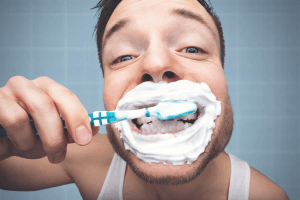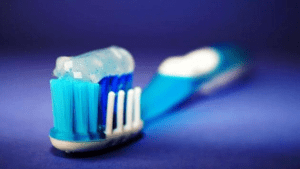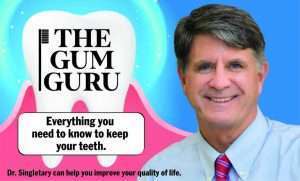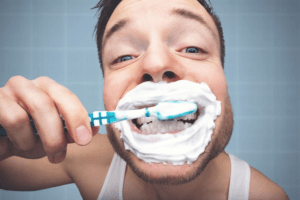Most everyone in Raleigh and in the Research Triangle area understand that regular tooth brushing is imperative to maintaining oral health. Even so, many individuals do not brush as often as they should. While brushing infrequently leads to oral health complications like gum disease, brushing too much may be a problem too! Over Brushing can actually counteract efforts to achieve healthy teeth and gums. How do you know when you are brushing too much?
The purpose of brushing your teeth is to remove plaque, the sticky, colorless bacterial film that sticks to the teeth. Every time we eat something or drink anything besides water, plaque forms when bacteria in the mouth mixes with food and drink. Left unremoved, plaque destroys tooth enamel, invades the gum tissue, and breaks down tooth-supporting tissue and bone. For this reason, it is crucial to remove plaque after every meal by brushing.
 Although brushing after eating is imperative, it is possible to brush your teeth too much or too hard. Over Brushing may wear down your tooth enamel, the protective layer of the teeth, causing sensitivity to hot and cold substances. To prevent erosion of tooth enamel, make sure your toothpaste contains fluoride, which helps prevent tooth demineralization and cavities.
Although brushing after eating is imperative, it is possible to brush your teeth too much or too hard. Over Brushing may wear down your tooth enamel, the protective layer of the teeth, causing sensitivity to hot and cold substances. To prevent erosion of tooth enamel, make sure your toothpaste contains fluoride, which helps prevent tooth demineralization and cavities.
Additionally, brushing too hard can also weaken your gum tissue, prompting gum recession. Gum recession causes the gums to recede from the teeth, making one appear “long in the tooth.” If you are forcefully brushing your teeth multiple times a day and you notice gum recession, the solution may not be more brushing. Instead, switch to a soft bristle toothbrush. As opposed to scraping your teeth like you are trying to remove barnacles from a boat, decrease the pressure on the brush and increase the length of time you are brushing. Careful thoroughness leads to better results than aggressive scrubbing.
 For best results, hold the toothbrush at a 45 degree angle and brush in a circular motion, not in a back and forth sawing pattern. Don’t brush so hard that you are crushing the bristles against your teeth; instead, exert just enough pressure to feel the bristles. Finally, brush for a minimum of two minutes, spending equal time in the upper and lower areas of the mouth. Click here for more information on proper brushing techniques.
For best results, hold the toothbrush at a 45 degree angle and brush in a circular motion, not in a back and forth sawing pattern. Don’t brush so hard that you are crushing the bristles against your teeth; instead, exert just enough pressure to feel the bristles. Finally, brush for a minimum of two minutes, spending equal time in the upper and lower areas of the mouth. Click here for more information on proper brushing techniques.
Finally, remember that toothbrush bristles break down over time and become frayed. This fraying can damage the gum tissue. To avoid this issue, the American Dental Association recommends that you replace your toothbrush every three to four months.
In conclusion, if you brush regularly after each meal and you notice gum recession or sensitivity to hot and cold substances, you could be brushing too hard. Try easing up on the toothbrush, replacing your brush with a soft-bristled brush, and ensuring you are using proper brushing techniques.
Have questions? Give us a call at (919) 518-8222.

For more information on this topic, listen to the Gum Guru Podcast by clicking the link below:
